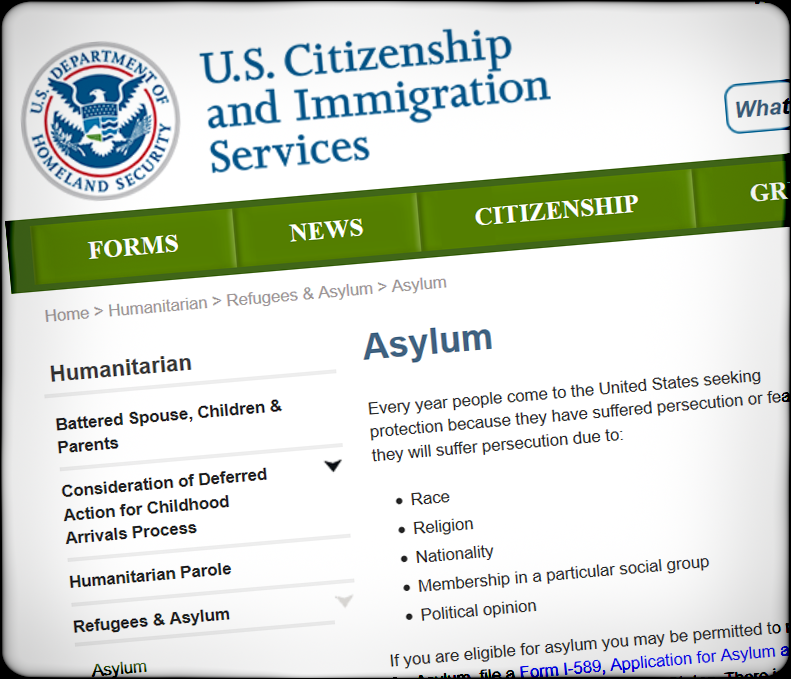- Border agents will take them into custody as part of a limited experiment that will grant them access to legal advice on the asylum claim.
 Washington, DC, Apr.16.– Starting Friday, April 14, a small number of migrants trying to enter the country illegally will be able to count on legal advice as part of a border control experiment announced by the Department of Homeland Security (DHS).
Washington, DC, Apr.16.– Starting Friday, April 14, a small number of migrants trying to enter the country illegally will be able to count on legal advice as part of a border control experiment announced by the Department of Homeland Security (DHS).
This experiment has begun since the norm created by the previous pandemic, which facilitated the asylum-application procedures for the great majority of migrants, is coming to an end. The DHS has since this past Friday hired a provider of legal services to represent the applicants and counsel them on how to handle the assessment of their case during the so-called "founded fear interviews."
For this purpose, large temporary facilities of the Customs and Border Protection Office (CBP) have been built where migrants will be detained for a maximum of 72 hours to wait for the evaluation interview.
The Trump Administration set a precedent when it introduced expedited screening while migrants were in CBP custody, but President Biden canceled it within the first week of his term. Since then, the wait for the evaluation interview is taking more than four weeks and, if the asylum application is rejected, they are detained for four, five, or six more weeks until they are deported to their respective countries. 
Legal counsel is important because although the grounds for claiming asylum are the same as those for seeking refugee status, there are some singular differences in law and regulation and, consequently, also in the review and adjudication processes used. But it is very costly. It is important to note that a large number of illegal entries are never detected. Still, the number of people being apprehended at the border trying to enter the country was about 6,000 a day in February, but authorities forecast it to rise to about 13,000 a day in the coming months, as DHS officials acknowledge.
The cost of providing legal counsel to migrants entering illegally to the US is very high. Immigration lawyers usually charge $250 to $600 per hour. Experts estimate the total fee in a simple case to be from $1,500 in a simple case to $15,000 or more in a complex case. In the particular case of asylum applications, the estimates range from $1,000 to $6,000 per immigrant. If the legal counsel takes the case to court to defend the  immigrant in a deportation case, the cost ranges from $2,000 to $10,000 per case. For example, in 2019 504,000 deportation cases were taken to court. Many of them were not at taxpayer's expense, but "only" about 35% of the cases according to the Department of Justice.
immigrant in a deportation case, the cost ranges from $2,000 to $10,000 per case. For example, in 2019 504,000 deportation cases were taken to court. Many of them were not at taxpayer's expense, but "only" about 35% of the cases according to the Department of Justice.
However, this is against the law. The Immigration and Nationality Act states that, while an alien in the United States shall have the privilege of counsel in removal proceedings and administrative appeals, that counsel must be at no expense to the government. This due process privilege is extremely generous, and it is one that the present Administration has sought to expand—at taxpayer expense.
Such expansion efforts give those migrants more benefits than U.S. citizens receive, who are not provided with taxpayer-funded attorneys in civil matters. Legal experts argue that citizen taxpayers should not be forced to pay for the lawyers of illegal aliens, and existing taxpayer funds for legal representation for illegal aliens should be rescinded. These experts emphasize that taxpayer-funded counsel for aliens violates the law, gives even illegal aliens a right not given to U.S. citizens, and is financially unsustainable.
Others opposed to this leniency argue that taxpayer-funded lawyers for illegal aliens would provide an incentive to aliens to litigate at will, even when they have a frivolous claim since they will not have to foot the substantial legal bills they rack up.
On the opposite side, for example, open-borders advocates and their allies in the New York State legislature are pushing for a permanent "right" to taxpayer-funded deportation legal defense and other immigration proceedings since last January. NY Senate Bill (SB) 999, sponsored by Sen. Brad Hoylman (D-Manhattan), and Assembly Bill (AB) 160, sponsored by Assemblywoman Catalina Cruz (D-Queens), would create a statutory right to taxpayer-funded deportation legal defense for every individual in New York who is unable to pay for an immigration lawyer. Murad Awawdeh, executive director of the New York Immigration Coalition (NYIC), claims the legislation is needed to guarantee “no one must defend themselves against a trained-government lawyer alone to protect themselves and their families from deportation.”
In a parallel activity to this dispute over rights, costs, and the taxpayer's responsibility, some catholic and other religious charities provide high-quality immigration legal assistance to those unable to obtain representation because of the high costs. They seek the assistance of pro bono attorneys for both litigation and administrative cases and also accepts law student volunteers during the summer and during the school year.
Comments powered by CComment